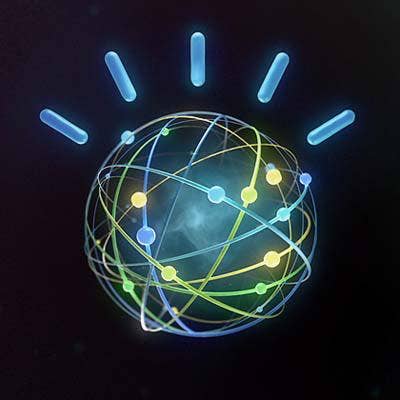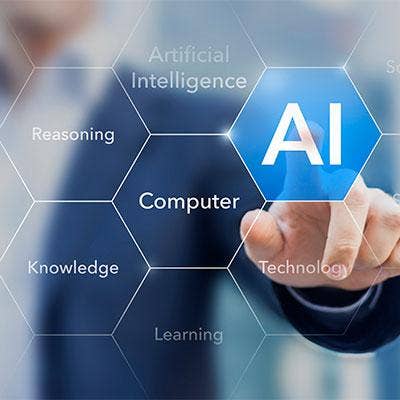Q&A: IBM's Watson Leader On 'Dark Data' And The Age Of Reason

IBM Exec: The Age Of Cognitive 'Is Here'
As vice president for implementations in IBM's Watson group, Ed Harbour leads Big Blue's efforts to bring cognitive computing to the masses. IBM is betting big that the technology that delivers predictive analytics and insight by mimicking human thought processes will revolutionize software development and establish the century-old company as a leader in a new era characterized by computing systems that can learn, understand, and even reason.
Watson combines several state-of-the-art capabilities, including natural language processing, big data analytics and machine learning. The platform delivers those technologies to consumers, at scale, in the cloud.
Harbour spoke to CRN about how Watson, by delivering cognitive computing capabilities through APIs, will accelerate the pace at which developers unlock innovation, and how partners can leverage those capabilities to deliver unique solutions to their customers.

What is the big transformation you're seeing that's making IBM so confident that Watson represents the future of the company?
Harbour: A system like Watson … is really about data. And it's really about unstructured data, [which is] in natural language. It's typically where machine learning happens because you're mimicking the way humans reason and uses sort of an understanding and holistic model. …
And recent studies have shown that 80 percent of the world's data today is what's called 'dark data.' It's very useful for you and I to understand and read, but our capacity to process it all is limited. Computers have great capacity to process, but without the advent of natural language processing, they don't have the ability to see it and understand it.
So it's really taking all this data now, and gaining insight, and becoming an inside adviser to professionals, to people in our daily lives. That's really the transformation.

Is that cognitive approach to understanding data and gaining insight the big shift in computing that's happening now?
I think this, coupled with cloud and coupled with Software-as-a-Service, is the big shift. Because that allows everyone access. That allows a much easier and, frankly, lower entry point to access cognitive services. It makes them available virtually everywhere.
So I think it's a combination. The notion of cognitive computing, based on natural language processing, based on machine learning, really based on the ability to learn, to understand and even reason -- that's still a limited ability, but it's going to get better -- is really the shift in itself. Then making those services available so they can be consumed at scale.

What are the opportunities for your partners? What can they do now with Watson and the cognitive learning platform that would have been prohibitive for them in the past?
My team actually works with the partners … to help them understand the capabilities. Anything from improving a retail experience to actually writing an application that can help understand about me – personalization--but also do it dynamically as I'm engaging in that retail experience, through a number of our capabilities that we make available to them, such as APIs around natural language classifier and retrieve-and-rank. They can actually help a conversational pattern and that conversational pattern can allow us to support a retailer trying to better pinpoint information to me.
As an example, we have an API that looks at personality insights and can better understand ways to present material to people so they might be more receptive to understanding an offer.

How big is that opportunity for your partner community?
It's hard to quantify raw numbers, but I think it absolutely is going be quite large and it's going to be in every application.
Let's go back. We have 80 percent of the world's data being dark data. The developers and people who write code, if you will, are beginning to become the next level of influencers. And all that code that they're writing is on an API model framework because it's easy to pull down, it's part of a cloud service, its available everywhere. Imagine if we include cognitive services in that same model. Well, the acceleration to leverage insight, to leverage machine learning, to leverage machines' ability to communicate, and to include that in an application, is going to unlock quite a bit of innovation.

How significant do you think Watson will be in driving business to a lot of systems integrators and cloud services resellers?
If you think back to when smartphones first came out, and Apple got us all excited based on their design notion with the first iPhones, that iPhone was very capable, but it didn't yet have a repertoire of a lot of applications in the phone world. But now that's a huge marketplace to leverage that device and bring function.
And I think what we're seeing with cognitive services is the same kind of model. The innovators and developers that write applications, it will just be what they do; they will include cognitive services. There's a big push now from many companies talking about conversational services. … Watson, with a number of APIs, provides conversational services and dialogue services. It begins to enable us to leverage a trusted adviser through machine learning and actual language processing.
I think it's going to be huge. In the not-so-distant future, there won't be applications that don't include a cognitive service or services within them.

For IBM, this is an integral part of the road map going forward. Why is IBM so confident this is the platform it wants to define its business with? Why is this the driving force that IBM wants its brand associated with?
It brings to bear what we frankly have traditionally done and will continue to do. We are a heavily vested scientific engineering company -- have been, always will be.
If you go back through the eras of computing, we've been on the forefront of bringing those technologies to market and to life. The way we look at what we're trying to do with Watson, it's about science, and there's some pretty serious science here. It's really about simplifying that science into ways we can consume, and it's about scaling that science so it's available to a large area and a large number of people to consume and also innovate around.
The clients I talk to, the partners I talk to, they understand that this is going to be a disrupter. And whether they choose to embrace it to their advantage or whether they don't is probably going to determine the outcome of how their businesses go forward.

Where are we in the transformation process? Is the cognitive era just starting, or is it just over the horizon? Have we crossed that threshold?
I think the first question is: Is the market there? And I think absolutely the market is there. IBM is not the only capable firm in this space and there's more and more technology being introduced every day.
And that tells me that when you have others that are participating and bringing ideas forward, the market is there.
As we go forward, t's going to be continually evolving activities and continuing innovation.
I would say it is here. The market is established, it is commercially viable, and now it's just a matter of continuing to grow and be adopted.